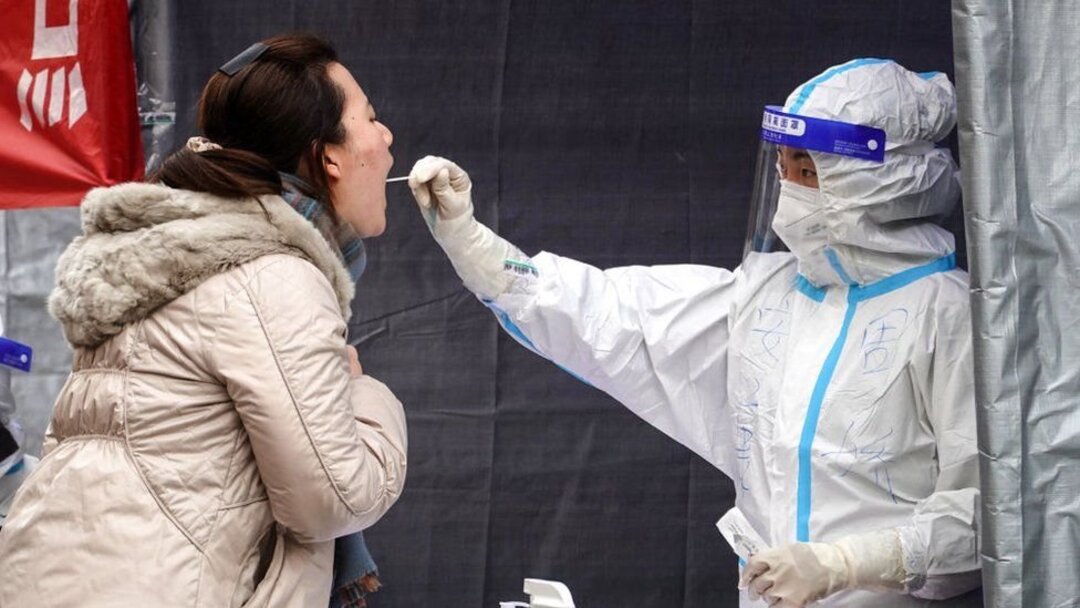-
Chinese city swabs fish, crabs, other animals to test for COVID-19

The Chinese city of Xiamen has been testing freshly caught fish, shrimp, crabs and other sea creatures for COVID-19 in an effort to crack down on another coronavirus outbreak, viral videos circulating social media this week showed, according to the al-Arabiya English.
It said, health workers are seen sticking cotton swabs, like those commonly used for PCR tests, into the mouths of fish and crabs which sparked uproar on social media, with many saying that the country had taken its zero-COVID policy too far.
China has relied on mass testing, occasional snap lockdowns and extensive quarantines in an effort to curb the spread of the virus.
A notice issued by Xiamen authorities last month ordered both “fishermen and fishing goods” to be tested for COVID-19 once a week.
“If you go to sea again, you need to provide a 48-hour nucleic acid test certificate,” the notice stated, insisting that “seagoing operators must actively cooperate” with government regulations on the matter.
厦门流行给鱼虾螃蟹测核酸,已经成为了国际大新闻,震惊了世界。岂止鱼虾螃蟹,连贝类也要测,万物皆有肺,都能感染新冠。 pic.twitter.com/ghl0CzuiTa
— 方舟子 (@fangshimin) August 21, 2022
The authorities said that since June, “illegal trading and illegal contact” between fishermen in the Fujian province and overseas vessels lead to the spread of COVID-19 to China which caused “great social harm.”
Over five million people have been ordered to undergo COVID-19 testing in Xiamen this week after around 40 infections were confirmed, the BBC reported on Friday.
Oil prices decline as China renews COVID-19 restrictions
Professor Jin Dongyan from Hong Kong University’s School of Biomedical Sciences told the CNN that China’s mass testing policy on seafood was a “waste of resources.”
“They should focus on the people rather than the fish,” he said, adding that testing the fish was “completely useless” because it was highly unlikely that a fish with a COVID-19 infection could spread the virus to humans.
“It is 100 or 1,000 times more possible that these fishermen got infected by other fishermen. There’s no evidence that the fish can transmit the virus.”
Source: alarabiyaenglish
You May Also Like
Popular Posts
Caricature
opinion
Report
ads
Newsletter
Subscribe to our mailing list to get the new updates!























